-
EXECUTIVE SUMMARY 28
-
MARKET ATTRACTIVENESS ANALYSIS 30
- Commercial Laundry Machines Market, BY PRODUCT TYPE 30
- Commercial Laundry Machines Market, BY MODE OF OPERATION 31
- Commercial Laundry Machines Market, BY CAPACITY 32
- Commercial Laundry Machines Market, BY APPLICATION 33
- Commercial Laundry Machines Market, BY DISTRIBUTION CHANNEL 34
-
MARKET INTRODUCTION 35
-
DEFINITION 35
-
SCOPE OF THE STUDY 35
-
MARKET STRUCTURE 36
-
RESEARCH METHODOLOGY 37
-
RESEARCH PROCESS 37
-
PRIMARY RESEARCH 38
-
SECONDARY RESEARCH 39
-
MARKET SIZE ESTIMATION 40
-
TOP-DOWN AND BOTTOM-UP APPROACH 40
-
FORECAST MODEL 41
-
LIST OF ASSUMPTIONS 42
-
MARKET DYNAMICS 43
-
INTRODUCTION 43
-
DRIVERS 44
- INCREASING DEMAND FROM HEALTHCARE AND HOSPITALITY INDUSTRIES 44
- RAPID URBANIZATION ACROSS THE GLOBE 44
- DRIVER IMPACT ANALYSIS 45
-
RESTRAINTS 45
- HIGH WATER FOOTPRINT AND GROWING CONCERNS FOR THE ENVIRONMENT 45
- RESTRAINT IMPACT ANALYSIS 46
-
OPPORTUNITY 46
- RISING TECHNOLOGICAL DEVELOPMENTS IN COMMERCIAL LAUNDRY MACHINES 46
-
COVID-19 IMPACT ANALYSIS 47
- ECONOMIC IMPACT 47
- IMPACT ON PRODUCTION 47
- IMPACT ON COMMERCIAL LAUNDRY MACHINERY INDUSTRY 48
- IMPACT ON WORLD TRADE 49
-
MARKET FACTOR ANALYSIS 50
-
SUPPLY CHAIN ANALYSIS 50
- R&D 50
- RAW MATERIAL SUPPLY 51
- MANUFACTURERS 51
- DISTRIBUTION & SALES CHANNELS 51
- END USE 51
-
PORTER''S FIVE FORCES MODEL 52
- THREAT OF NEW ENTRANTS 52
- BARGAINING POWER OF SUPPLIERS 53
- BARGAINING POWER OF BUYERS 53
- THREAT OF SUBSTITUTES 53
- RIVALRY 53
-
Commercial Laundry Machines Market, BY PRODUCT TYPE 54
-
OVERVIEW 54
-
WASHERS 55
-
DRYERS 55
-
IRONERS 56
-
DRY CLEANER 56
-
SPECIAL LAUNDRY SOLUTIONS 56
-
COMBO WASHERS & DRYERS 56
-
OTHERS 56
-
Commercial Laundry Machines Market, BY MODE OF OPERATION 60
-
OVERVIEW 60
-
SEMI-AUTOMATIC 61
-
FULLY AUTOMATIC 61
-
Commercial Laundry Machines Market, BY CAPACITY 63
-
OVERVIEW 63
-
UP TO 15 KG 64
-
15-30 KG 64
-
31-50 KG 64
-
ABOVE 50 KG 64
-
Commercial Laundry Machines Market, BY APPLICATION 66
-
OVERVIEW 66
-
HEALTHCARE 67
-
HOSPITALITY 67
-
LAUNDRY STORES/SELF SERVICE LAUNDRY 67
-
OTHERS 67
-
Commercial Laundry Machines Market, BY DISTRIBUTION CHANNEL 70
-
OVERVIEW 70
-
ONLINE 71
-
OFFLINE 71
-
Commercial Laundry Machines Market, BY REGION 73
-
OVERVIEW 73
- Commercial Laundry Machines Market, BY REGION, 2018–2032 74
-
NORTH AMERICA 75
- NORTH AMERICA: Commercial Laundry Machines Market, BY COUNTRY, 2018–2032 76
- US 81
- CANADA 85
- MEXICO 89
-
EUROPE 94
- EUROPE: Commercial Laundry Machines Market, BY COUNTRY, 2018–2032 94
- GERMANY 99
- FRANCE 104
- UK 108
- ITALY 112
- SPAIN 116
- REST OF EUROPE 120
-
ASIA PACIFIC 126
-
ASIA PACIFIC 127
-
Commercial Laundry Machines Market, BY COUNTRY, 2018–2032 129
- CHINA 131
- JAPAN 135
- INDIA 139
- SOUTH KOREA 143
- AUSTRALIA 148
- INDONESIA 152
- MALAYSIA 157
- PHILIPPINES 162
- THAILAND 167
- NEW ZEALAND 171
- VIETNAM 176
- SINGAPORE 180
- TAIWAN 185
- HONG KONG 189
- REST OF ASIA PACIFIC 195
-
MIDDLE EAST & AFRICA 201
- MIDDLE EAST & AFRICA: Commercial Laundry Machines Market, BY COUNTRY, 2018–2032 202
- SAUDI ARABIA 207
- UAE 211
- SOUTH AFRICA 217
- REST OF MIDDLE EAST & AFRICA 222
-
SOUTH AMERICA 228
- SOUTH AMERICA: Commercial Laundry Machines Market, BY COUNTRY, 2018–2032 228
- BRAZIL 234
- ARGENTINA 238
- REST OF SOUTH AMERICA 244
-
COMPETITIVE LANDSCAPE 250
-
INTRODUCTION 250
-
MARKET STRATEGY ANALYSIS 250
-
COMPETITIVE BENCHMARKING 251
-
MARKET SHARE ANALYSIS 253
-
KEY DEVELOPMENTS & GROWTH STRATEGIES 253
- MERGER & ACQUISITION 253
- PRODUCT LAUNCH 254
- EXPANSION 254
- COLLABORATION 255
-
COMPANY PROFILES 256
-
ALLIANCE LAUNDRY SYSTEMS LLC 256
- COMPANY OVERVIEW 256
- FINANCIAL OVERVIEW 256
- SEGMENTAL INSIGHT FOR YEAR 2022 256
- PRODUCTS OFFERED 257
- KEY DEVELOPMENTS 258
- SWOT ANALYSIS 259
- KEY STRATEGIES 259
-
ELECTROLUX PROFESSIONAL GROUP 260
- COMPANY OVERVIEW 260
- FINANCIAL OVERVIEW 261
- PRODUCTS OFFERED 262
- KEY DEVELOPMENTS 263
- SWOT ANALYSIS 263
- KEY STRATEGIES 264
-
LG ELECTRONICS 265
- COMPANY OVERVIEW 265
- FINANCIAL OVERVIEW 266
- PRODUCTS OFFERED 267
- KEY DEVELOPMENTS 267
- SWOT ANALYSIS 268
- KEY STRATEGIES 268
-
JENSEN-GROUP 269
- COMPANY OVERVIEW 269
- FINANCIAL OVERVIEW 270
- PRODUCTS OFFERED 271
- KEY DEVELOPMENTS 271
- KEY STRATEGIES 271
-
IMAGE LAUNDRY SYSTEMS 272
- COMPANY OVERVIEW 272
- FINANCIAL OVERVIEW 272
- PRODUCTS OFFERED 272
- KEY DEVELOPMENTS 273
- SWOT ANALYSIS 273
- KEY STRATEGIES 273
-
GIRBAU, SA. 274
- COMPANY OVERVIEW 274
- FINANCIAL OVERVIEW 274
- PRODUCTS OFFERED 275
- KEY DEVELOPMENTS 276
- KEY STRATEGIES 276
-
PELLERIN MILNOR CORPORATION 277
- COMPANY OVERVIEW 277
- FINANCIAL OVERVIEW 277
- PRODUCTS/SERVICES OFFERED 277
- KEY DEVELOPMENTS 278
- KEY STRATEGIES 278
-
ONNERA GROUP 279
- COMPANY OVERVIEW 279
- FINANCIAL OVERVIEW 279
- PRODUCTS OFFERED 279
- KEY DEVELOPMENTS 280
- KEY STRATEGIES 280
-
KANNEGIESSER 281
- COMPANY OVERVIEW 281
- FINANCIAL OVERVIEW 281
- PRODUCTS OFFERED 281
- KEY DEVELOPMENTS 281
- KEY STRATEGIES 281
-
MIELE PROFESSIONAL 282
- COMPANY OVERVIEW 282
- FINANCIAL OVERVIEW 282
- PRODUCTS OFFERED 282
- KEY DEVELOPMENTS 283
- KEY STRATEGIES 283
-
ASKO APPLIANCES 284
- COMPANY OVERVIEW 284
- FINANCIAL OVERVIEW 284
- PRODUCTS OFFERED 284
- KEY DEVELOPMENTS 285
- KEY STRATEGIES 285
-
DEXTER LAUNDRY 286
- COMPANY OVERVIEW 286
- FINANCIAL OVERVIEW 286
- PRODUCTS OFFERED 286
- KEY DEVELOPMENTS 287
- KEY STRATEGIES 287
-
SHANGHAI SAILSTAR MACHINERY GROUP CO. LTD. 288
- COMPANY OVERVIEW 288
- FINANCIAL OVERVIEW 288
- PRODUCTS OFFERED 288
- KEY DEVELOPMENTS 289
- KEY STRATEGIES 289
-
JIANGSU SEALION MACHINE GROUP 290
- COMPANY OVERVIEW 290
- FINANCIAL OVERVIEW 290
- PRODUCTS OFFERED 290
- KEY DEVELOPMENTS 291
- KEY STRATEGIES 291
-
LIST OF TABLES
-
LIST OF ASSUMPTIONS 42
-
Commercial Laundry Machines Market, BY PRODUCT TYPE 2018–2032 (UNITS) 58
-
Commercial Laundry Machines Market, BY SPECIAL LAUNDRY SOLUTION 2018–2032 (UNITS) 58
-
Commercial Laundry Machines Market, BY PRODUCT TYPE 2018–2032 (USD MILLION) 58
-
Commercial Laundry Machines Market, BY SPECIAL LAUNDRY SOLUTION 2018–2032 (USD MILLION) 59
-
Commercial Laundry Machines Market, BY MODE OF OPERATION 2018–2032 (UNITS) 62
-
Commercial Laundry Machines Market, BY MODE OF OPERATION 2018–2032 (USD MILLION) 62
-
Commercial Laundry Machines Market, BY CAPACITY 2018–2032 (UNITS) 64
-
Commercial Laundry Machines Market, BY CAPACITY 2018–2032 (USD MILLION) 65
-
Commercial Laundry Machines Market, BY APPLICATION 2018–2032 (UNITS) 68
-
Commercial Laundry Machines Market, BY HEALTHCARE 2018–2032 (UNITS) 68
-
Commercial Laundry Machines Market, BY APPLICATION 2018–2032 (USD MILLION) 68
-
Commercial Laundry Machines Market, BY HEALTHCARE 2018–2032 (USD MILLION) 69
-
Commercial Laundry Machines Market, BY DISTRIBUTION CHANNEL 2018–2032 (UNITS) 72
-
Commercial Laundry Machines Market, BY OFFLINE 2018–2032 (UNITS) 72
-
Commercial Laundry Machines Market, BY DISTRIBUTION CHANNEL 2018–2032 (USD MILLION) 72
-
Commercial Laundry Machines Market, BY OFFLINE 2018–2032 (USD MILLION) 72
-
Commercial Laundry Machines Market, BY REGION, 2018–2032 (UNITS) 74
-
Commercial Laundry Machines Market, BY REGION, 2018–2032 (USD MILLION) 74
-
NORTH AMERICA: Commercial Laundry Machines Market, BY COUNTRY, 2018–2032 (UNITS) 76
-
NORTH AMERICA: Commercial Laundry Machines Market, BY COUNTRY, 2018–2032 (USD MILLION) 76
-
Commercial Laundry Machines Market, BY PRODUCT TYPE 2018–2032 (UNITS) 76
-
Commercial Laundry Machines Market, BY SPECIAL LAUNDRY SOLUTION 2018–2032 (UNITS) 77
-
Commercial Laundry Machines Market, BY PRODUCT TYPE 2018–2032 (USD MILLION) 77
-
Commercial Laundry Machines Market, BY SPECIAL LAUNDRY SOLUTION 2018–2032 (USD MILLION) 77
-
Commercial Laundry Machines Market, BY MODE OF OPERATION 2018–2032 (UNITS) 78
-
Commercial Laundry Machines Market, BY MODE OF OPERATION 2018–2032 (USD MILLION) 78
-
Commercial Laundry Machines Market, BY CAPACITY 2018–2032 (UNITS) 78
-
Commercial Laundry Machines Market, BY CAPACITY 2018–2032 (USD MILLION) 78
-
Commercial Laundry Machines Market, BY APPLICATION 2018–2032 (UNITS) 79
-
Commercial Laundry Machines Market, BY HEALTHCARE 2018–2032 (UNITS) 79
-
Commercial Laundry Machines Market, BY APPLICATION 2018–2032 (USD MILLION) 79
-
Commercial Laundry Machines Market, BY HEALTHCARE 2018–2032 (USD MILLION) 80
-
Commercial Laundry Machines Market, BY DISTRIBUTION CHANNEL 2018–2032 (UNITS) 80
-
Commercial Laundry Machines Market, BY OFFLINE 2018–2032 (UNITS) 80
-
Commercial Laundry Machines Market, BY DISTRIBUTION CHANNEL 2018–2032 (USD MILLION) 80
-
Commercial Laundry Machines Market, BY OFFLINE 2018–2032 (USD MILLION) 81
-
Commercial Laundry Machines Market, BY PRODUCT TYPE 2018–2032 (UNITS) 81
-
Commercial Laundry Machines Market, BY SPECIAL LAUNDRY SOLUTION 2018–2032 (UNITS) 81
-
Commercial Laundry Machines Market, BY PRODUCT TYPE 2018–2032 (USD MILLION) 82
-
Commercial Laundry Machines Market, BY SPECIAL LAUNDRY SOLUTION 2018–2032 (USD MILLION) 82
-
Commercial Laundry Machines Market, BY MODE OF OPERATION 2018–2032 (UNITS) 82
-
Commercial Laundry Machines Market, BY MODE OF OPERATION 2018–2032 (USD MILLION) 82
-
Commercial Laundry Machines Market, BY CAPACITY 2018–2032 (UNITS) 83
-
Commercial Laundry Machines Market, BY CAPACITY 2018–2032 (USD MILLION) 83
-
Commercial Laundry Machines Market, BY APPLICATION 2018–2032 (UNITS) 83
-
Commercial Laundry Machines Market, BY HEALTHCARE 2018–2032 (UNITS) 83
-
Commercial Laundry Machines Market, BY APPLICATION 2018–2032 (USD MILLION) 84
-
Commercial Laundry Machines Market, BY HEALTHCARE 2018–2032 (USD MILLION) 84
-
Commercial Laundry Machines Market, BY DISTRIBUTION CHANNEL 2018–2032 (UNITS) 84
-
Commercial Laundry Machines Market, BY OFFLINE 2018–2032 (UNITS) 84
-
Commercial Laundry Machines Market, BY DISTRIBUTION CHANNEL 2018–2032 (USD MILLION) 85
-
Commercial Laundry Machines Market, BY OFFLINE 2018–2032 (USD MILLION) 85
-
Commercial Laundry Machines Market, BY PRODUCT TYPE 2018–2032 (UNITS) 85
-
Commercial Laundry Machines Market, BY SPECIAL LAUNDRY SOLUTION 2018–2032 (UNITS) 86
-
Commercial Laundry Machines Market, BY PRODUCT TYPE 2018–2032 (USD MILLION) 86
-
Commercial Laundry Machines Market, BY SPECIAL LAUNDRY SOLUTION 2018–2032 (USD MILLION) 86
-
Commercial Laundry Machines Market, BY MODE OF OPERATION 2018–2032 (UNITS) 86
-
Commercial Laundry Machines Market, BY MODE OF OPERATION 2018–2032 (USD MILLION) 87
-
CANADA COMMERCIAL LAUNDRY MACHINES
-
'


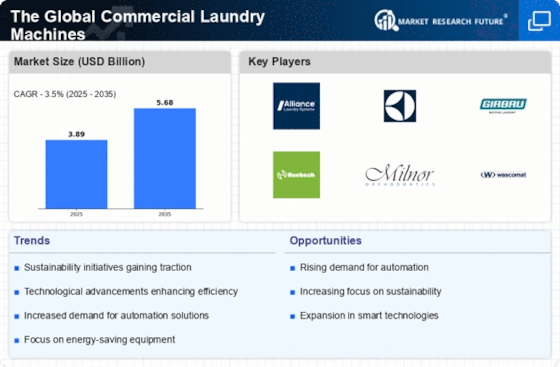
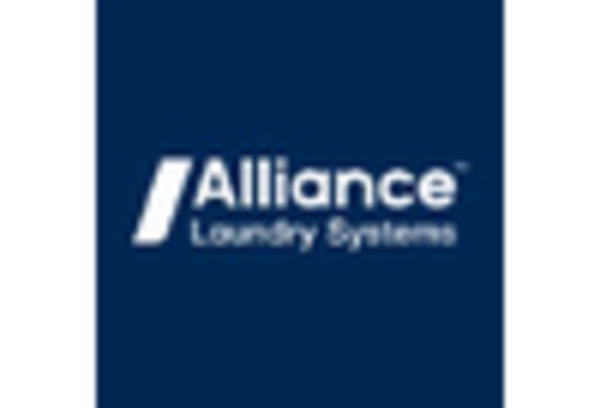
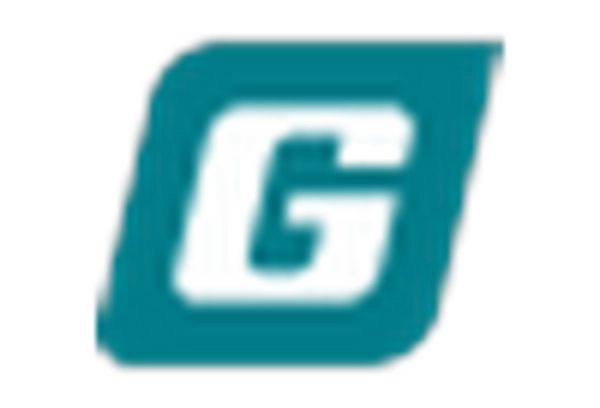
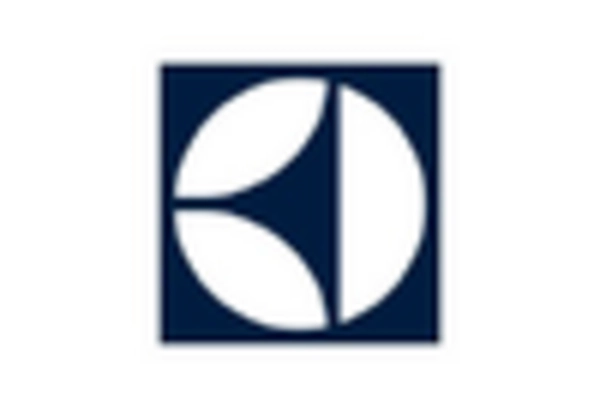
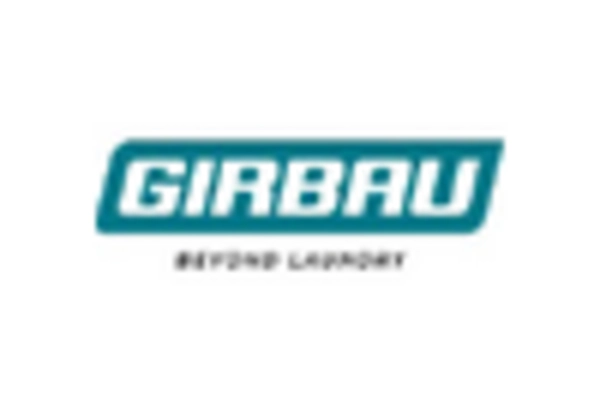
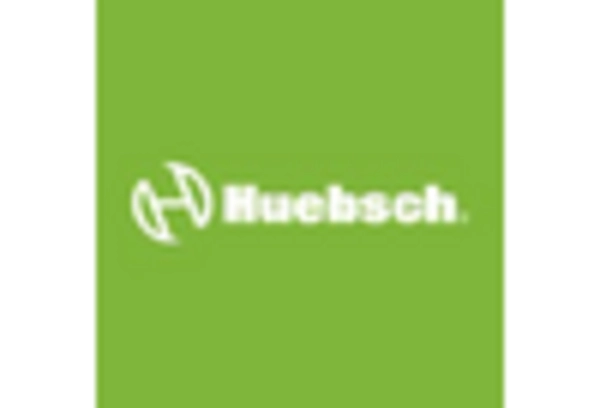

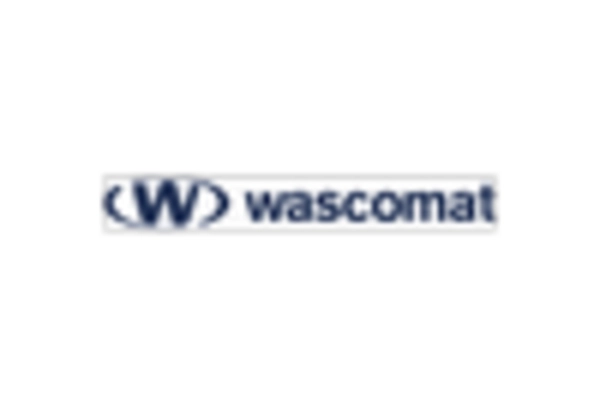









Leave a Comment